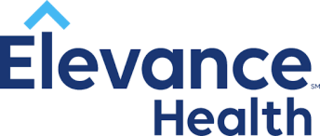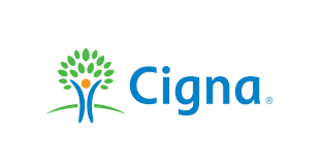7 Best Health Insurance for Small Business Owners of 2023
Health insurance helps individuals pay for routine check-ups, preventative care and medical emergencies. Health benefits consistently top the list of desired job perks, and workers commonly rely on employer-provided coverage for themselves as well as their families.
Many small business owners provide their employees with group health insurance as a way to attract and retain talent. If you're looking for a health insurance provider for your small business, navigating the sheer number of plans, policies and industry jargon may seem daunting at first blush.
To help you narrow down your options, we've compiled a list of the top best health insurance plans for small business owners.
And if you don't already have coverage, you may also want to check out our list of best business insurance companies to find the right provider and policy for your needs.
Our Top Picks for the Best Health Insurance for Small Business Owners
- United Healthcare — Largest Network of Providers
- Blue Cross Blue Shield — Best For Customer Service
- Elevance — Best Regional Networks
- Aetna — Best Preventative Care
- Kaiser Permanente — Best Prices
- Humana — Best Customizable Plans
- Cigna — Best for 24/7 Customer Service
Best Health Insurance for Small Business Owners Reviews
We've assessed the following business health insurance plans according to a number of sought-after features. Continue reading to learn more about the best health insurance plans for small business owners.
Why we chose it: UnitedHealthcare tops our list as the best overall small business health insurance for employees. It's the largest insurance provider in the United States by membership, with approximately 70 million members. United Healthcare partners with over 1.3 million doctors, other healthcare professionals, and 6,500 hospitals and care facilities. Aside from its robust network and availability in all fifty states, it scores points for its comprehensive range of services and plans, including options for part-time and seasonal employees.
- An extensive network of healthcare providers
- Benefit options for part-time and seasonal employees
- Virtual therapy and specialty healthcare are available
- A diverse suite of products and services including helpful in-app services
- Legal issues over wrongfully denied claims
- Does not offer a platinum plan health insurance policy
United Healthcare offers a variety of plan types for small businesses, including HMO, PPO, EPO and POS plans. It also provides discounts to customers who bundle their health insurance with dental and vision coverage and publishes helpful resources such as free fitness, nutrition and self-care guides.
Besides offering a broad range of plan options, United Healthcare is an industry leader in technological integration. It offers convenient in-app services such as claim filing and mental health services (available with select small business plans via a dedicated app), features that can save prospective customers both time and effort.
Unlike some of the other options on our list, United Healthcare does not offer a platinum plan, which generally features more comprehensive coverage than other tiers. Additionally, the company paid out $91 million to the California state insurance commissioner's office over wrongfully denied claims in 2019. While the lawsuit involved PacifiCare, a UHC subsidiary acquired in 2005, prospective customers should know the company isn't infallible and are advised to read customer reviews before making a decision.
Why we chose it: Blue Cross Blue Shield (BCBS) made our list due to its expansive coverage network and high consumer service ratings. BCBS covers over 106 million Americans and is accepted by over 95% of physicians and 96% of hospitals. It also ranked highly across multiple regions in J.D. Power's 2022 U.S. Commercial Member Health Plan Study.
- Offers workplace wellness plans in many locations
- Highly rated by small businesses
- Operates in all 50 states and some international locations
- Comprehensive healthcare offerings
- Plans vary by location
- Higher than average healthcare premiums
- Some plans have high deductibles
Like many of the other health insurance providers on our list, BCBS offers a wide array of health insurance options, including PPOs, HMOs and high-deductible insurance plans. BCBS is actually made up of 34 independent, community-based companies operating under one banner. This means policies and coverage options may vary from company to company. Contact your regional BCBS provider to verify which services and coverage options are available near you.
While BCBS has a well-earned reputation for quality service and offerings, that quality comes at a price — online reviews suggest BCBS is more expensive than equivalent plan options offered by other competitors on our list. Additionally, some plans also have deductibles that exceed the industry standard, meaning consumers will pay more out of pocket when accessing medical services.
Ultimately, BCBS is a solid option for any small business owner looking to provide their employees with rock-solid coverage and a wide array of options. Nevertheless, double-check your local affiliate's coverage options and customer service ratings before you select BCBS for your small business's healthcare needs.
Why we chose it: Only available in 14 states, Elevance (formerly Anthem, Inc.) is a big player in the regions in which it is active due largely to its reasonably priced plans and extensive network of healthcare providers. This means employees have more options when choosing doctors and are less likely to have to go out of network to obtain treatment. Numerous online sources also suggest that consumers will pay less for coverage through Elevance.
- One of the most affordable options on our list as determined by reputable online review sources and quote generators
- Numerous plan types available to members
- An extensive network of healthcare partners
- High rate of coverage denials
- Low customer satisfaction ratings
- Only available in 14 states
Online reviews suggest Elevance is a solid choice for businesses looking to provide their employees with an extensive network of medical providers at a fair price. However, it's important to note that there have been accusations of poor customer service and high coverage denial rates against Elevance, which span several years.
From 2014 to 2019, California's Department of Managed Health Care levied $9.6 million in fines on Elevance Blue Cross, a local subsidiary, largely due to the company's failure to adequately handle customer grievances. Elevance also came under investigation by the Maine Bureau of Insurance earlier this year for allegations of underpayment, claim denials and payment delays.
Before selecting Elevance for your insurance needs, look up reviews of your local subsidiary. Elevance is available in California, Colorado, Connecticut, Georgia, Indiana, Kentucky, Maine, Missouri, Nevada, New Hampshire, New York, Ohio, Virginia and Wisconsin.
Why we chose it: Aetna made our list for its emphasis on preventative care options. In recent years, Aetna has pivoted strongly towards Value-Based Care (VBC). This healthcare philosophy emphasizes the importance of proactive measures such as preventative treatments and healthy lifestyle choices. All plans integrate aspects of VBC that incentivize plan participants to engage in healthy life choices such as exercising, maintaining a proper diet and quitting smoking.
- Friendly user experience with online, in-app, and over-the-phone service available
- Strong emphasis on preventative measures including value-based care
- Affordable prices
- Higher than average complaint rate
- History of wrongfully denying claims
Active in only 16 states, Aetna isn't quite as large as some heavy hitters on our list. However, with 169 years of history behind it, Aetna brings a considerable amount of institutional experience. Numerous online sources also report that the company's prices are affordable when compared to other providers.
According to the National Association of Insurance Commissioners, Aetna has a complaint index of 1.94. That means it has received roughly twice as many complaints as the average insurance company over the same period.
Additionally, Aetna sustained a $500,000 fine in 2020 for wrongfully denying many emergency room claims in California. While troubling, it’s important to note that many large health insurance providers sustain high complaint levels and fines. Proceed with caution and further research what people say about Aetna in your state or region.
Why we chose it: Kaiser Permanente is the cheapest health insurance option for small business owners that we found in our search. It also differs from the other providers in another important way. As a closed group, Kaiser Permanente doesn't just provide health insurance, it also runs a system of private hospitals accessible only to Kaiser Permanente members.
- Low prices for equivalent plan options
- Wide range of available plans
- Highly ranked for quality
- Only available in eight states and Washington D.C.
- Closed group structure can limit care options
With 12.6 million members in eight states (Hawaii, California, Colorado, Georgia, Maryland, Oregon, Virginia and Washington) and the District of Columbia, Kaiser Permanente is a relatively small outfit. Yet its unique business model makes it ideal for businesses looking to provide their employees with high-quality medical care at affordable prices.
Kaiser’s closed system model means members receive lower prices for medical services at its private facilities. And like Aetna, it emphasizes preventative care to reduce medical costs and keep its members healthy. Employers can also choose from plans offering a comprehensive range of options including gold, silver, and bronze plans. Within these pricing tiers, Kaiser Permanente offers the choice of copayment HMOs, deductible HMOs and HRA and HSA-qualified plans.
While Kaiser Permanente has earned consistently high rankings for quality service from industry groups and review services such as the U.S. News Health, it does have some drawbacks. Due to its limited geographic reach and restrictive network of medical care providers, it's not a great match for businesses that hire nationwide.
Why we chose it: Humana offers small business owners the best health insurance package. Highly rated for overall quality of coverage and with a below-average complaint index, Humana really shines when it comes to its personalized insurance plans.
- Low customer complaint volume
- Variety of plan options
- Provides coverage in 44 states
- Plans are on the pricier side
- Received a $630,000 fine in 2021 due to numerous insurance infractions
Business owners can select from a variety of plans, including HMOs and PPOs. Humana offers greater flexibility than other insurers since customers can customize their plans with popular add-ons such as dental, vision and hearing insurance.
Humana is America's fifth-largest health insurance company, with over 20 million members. While not outrageously expensive, Humana's prices tend toward the higher end of the spectrum. Quotes obtained from Humana’s website and numerous online review services show its prices trend slightly above the competition.
Last year, North Carolina's insurance department levied a $630,000 fine against Humana for various infractions, including unethical claims practices and poor policyholder treatment. The department also forced Humana to pay members an additional $227,206. While troublesome, it’s important to remember that many insurance providers run afoul of regulatory agencies. As a consumer, it’s important to do your due diligence when selecting an insurance provider.
Why we chose it: Cigna made its way onto our list because of the superior quality of its customer service as determined through online reviews. In addition to providing many of the features that we've seen elsewhere, such as dental and vision add-ons, Cigna offers live 24-hour customer support 365 days a year.
- Good customer reviews online
- Offers dental and vision coverage
- Multiple group plan options
- Only available in 12 states
- Expensive monthly premiums
Cigna offers multiple group health options including PPO, HMO and Open Access plans. Plans include free access to wellness programs and savings and spending plans. Cigna also maintains relationships with more than 1.5 million healthcare providers worldwide and over 99% of U.S. pharmacies.
Cigna holds an A- rating with the BBB and a 4.3/5 rating on Trustpilot with 1,551 total reviews. Customers complain about being denied coverage for medically necessary procedures and poor customer service.
Cigna is active in 12 states including Arizona, California, Colorado, Connecticut, Florida, Georgia, Maryland, Missouri, North Carolina, South Carolina, Tennessee and Texas.
Other companies we considered
The following companies provide quality health insurance plans. However, they failed to make our list because they did not excel in one or more of our core criteria.
Oscar
Founded in 2012, Oscar is a relative newcomer to the insurance industry. With a stated goal of "humanizing healthcare through technology," Oscar has grown rapidly and now services over 529,000 members across 18 states. Still in its infancy, Oscar failed to make our list due to its limited out-of-network provider availability and lack of dental or vision plans.
- Basic plans come with free general doctor visits, generic drugs and preventative care
- Dedicated concierge team readily available
- Strong focus on data analytics to improve patient outcomes
- Does not offer dental or vision insurance
- High premiums
- Customer complaints regarding billing and scheduling issues
Guidewell
Guidewell is the parent company to a broad family of health insurance providers including Florida Blue Cross, Blue Shield, and Puerto Rico-based Triple S-Management. Guidewell failed to make our list due to its small network and coverage area.
- Numerous in-network healthcare provider options
- Offers vision and dental insurance
- Supplemental coverage for accidents, critical illness and hospital confinement
- Regional coverage limited to Florida and Puerto Rico
- Plans and coverage may vary between companies within the Guidewell family
Health Insurance for Small Business Owners Guide
We compiled the following guide to help you better understand health insurance for small businesses, how it works and what factors you should consider when selecting a small business plan.
What is health insurance for small business owners?
When we're talking about health insurance for small business owners, we're referring to employer-sponsored healthcare coverage. The cost of this benefit is typically split between the business and the employee.
While small business owners are not legally obligated to provide healthcare for their employees, many choose to do so as a way to attract and retain talent. And many workers prefer to receive part of their compensation in employer-covered health insurance premiums because these are not subject to federal income and payroll taxes.
How does health insurance for small business owners work?
A different set of tax incentives apply to certain small businesses. Small business owners must have at least one full-time employee who is not a spouse or family member to purchase group health insurance.
Additionally, employers who offer health insurance must offer it to all full-time employees (defined as any employee working 30 hours a week or more). Health insurance cannot be limited to certain individuals, such as managers or highly skilled workers.
In order to offer employer-provided health insurance, 70% of your uninsured, full-time employees must opt-in to the plan you're offering. However, this 70% rule does not apply between November 15th and December 15th of any given year.
Small business owners can easily compare health insurance plans through the Small Business Health Options Program (SHOP), a government-run marketplace created as part of the Affordable Care Act. They can also research costs and coverage by contacting individual companies or health insurance brokerages.
How to pick group health insurance for small business owners
There are several important factors to consider when selecting a health insurance plan for your business.
As you browse through available plans, you'll want to balance price, coverage and out-of-network flexibility to find the health insurance that best fits the needs of your business and employees.
Benefit Design
Benefit design refers to the rules that govern the coverage, provider and service options made available to the insured, including cost-sharing measures such as copays, deductibles and coinsurance.
Because employers typically pay the lion's share of their employees' health insurance premiums, workers may access healthcare services for superfluous reasons. Good benefits design will incentivize users to access essential services while discouraging wasteful service usage.
Premiums
Health insurance premiums are monthly payments made in exchange for healthcare coverage. Businesses and workers typically share the cost of employer-provided health insurance premiums. Employers who pay 50% or more of the total cost of their employees' premiums may qualify for the small business healthcare tax credit.
As a business owner, you'll need to balance monthly premiums against coverage limitations and deductibles. Lower premiums result in reduced coverage and higher deductibles for employees. You may want to solicit employee feedback or research industry-standard health plans before making your selection.
Costs
While employers must cover at least 50% of their employee's health insurance costs to qualify for the small business healthcare tax credit, many choose to pay an even larger share as part of their workplace incentive program.
A 2020 survey found the average small business covered roughly 70% of its workers' health insurance premium costs. You may want to provide strong healthcare subsidies to attract and retain top talent for your business.
Network providers
Some health insurance plans require or incentivize users to go to a preselected group of medical care providers. Insurance companies negotiate lower fees for in-network medical care providers, and in exchange, the providers receive a stable customer base. In-network care may include primary care practitioners, dentists, psychiatrists, optometrists and other medical specialists.
Four types of health insurance plans make use of network providers: exclusive provider organizations (EPOs), health maintenance organizations (HMOs), preferred provider organizations (PPOs) and point-of-service plans (POSs).
HMOs and EPOs require participants to seek help exclusively through in-network providers, while PPOs and POSs provide more flexibility by allowing plan members to select out-of-network healthcare providers, albeit at a higher cost.
Types of plans
Benefits define and differentiate healthcare plans. Most companies offer five benefit tiers: bronze, silver, gold, platinum and catastrophic. Bronze plans are the least expensive while offering fewer benefits, and platinum plans are the most expensive while offering the highest level of coverage.
Individuals under the age of thirty (with some exceptions) can purchase a catastrophic plan, which provides bronze-level coverage with lower monthly premiums in exchange for very high deductibles. Individuals choosing catastrophic coverage plans may want to open a health savings account.
Some insurance plans rely on a network of physicians and healthcare providers. These four plan types are available through most major insurers.
- Health Maintenance Organization (HMO): HMOs require individuals to select a primary care physician (PCP) for their general needs. PCPs act as gatekeepers by issuing referrals to in-network specialists for more complex health problems. HMOs only allow their members to use in-network service providers. While more restrictive than other plan types, HMOs are typically less expensive.
- Exclusive Provider Organization (EPO): Like HMOs, EPOs won't cover out-of-network services except in certain emergency situations. However, EPOs do not require their members to see a PCP. This gives members greater freedom since they don't need to consult with their primary physician before seeking help from a specialist.
- Preferred Provider Organization (PPO): PPOs are more flexible than HMOs. However, that added flexibility comes at a cost. With a PPO you can choose between in- and out-of-network providers, although you can expect to pay more for out-of-network services. In addition, baseline premiums and deductibles are typically higher than what you'll find in HMOs. Not all PPO plans require members to choose a PCP.
- Point of Service Plan (POS): This plan type lies somewhere between an HMO and a PPO. Plan members must select a PCP who will take responsibility for issuing referrals to specialists. POS members can access out-of-network services, albeit on a limited basis. Out-of-network services will typically require greater out-of-pocket expenses and may provide less coverage than an in-network equivalent.
Deductibles and copays
When you enroll in coverage, your health insurance may require you to pay a predetermined amount of the total cost out of pocket before your health insurance kicks in. This is known as an insurance deductible. For example, if your deductible is $1,000 and your total medical bill is $3,000, you will pay $1,000 out of pocket before your insurance kicks in.
You and your insurer will split the remaining $2,000 according to your coinsurance agreement. If you have a 20% coinsurance, then you will pay $400 of the $2,000 and your insurer will pay the remaining $1,600.
Deductibles help keep healthcare premiums down by reducing the insurer's payment share of financial responsibility while discouraging plan members from seeking care for minor health concerns.
When choosing an insurance plan, you will be given the option of selecting from a range of deductibles. Lower deductibles mean higher monthly premiums while higher deductibles mean lower monthly premiums. If you don't anticipate using your plan much, you may want to opt for a higher deductible. However, a plan with a lower deductible will likely benefit you in the long run if you or a loved one suffers from a chronic illness since you will use your insurance more frequently.
Unlike deductibles, copays consist of a flat fee paid by the patient upon accessing certain types of medical care. Copays typically range from tens to hundreds of dollars. Insurance providers charge copays for various routine actions such as seeing your primary care physician or getting a prescription filled. Some companies may charge copays on top of your deductible.
Best Health Insurance for Small Business Owners FAQ
How much does health insurance cost for small business owners?
How do I get health insurance for a small business?
How We Chose the Best Health Insurance for Small Business Owners
During our selection process, we used the following five factors to inform our picks for the best health insurance coverage for small business owners.
Reviews and reputation
For each selection on our list, we took a careful look at publicly-available reviews, including those published by industry-leading organizations. We also looked through popular review forums and researched recent regulatory actions.
Complaints
While all health insurance companies receive complaints, some get more than others. To better understand which companies receive a disproportionate number of complaints, we looked at their National Association of Insurance Commissioners (NAIC) complaint index.
NAIC calculates the complaint index by dividing the company's share of complaints in the U.S. market by its share of premiums. A ratio above one means the company has received a higher number of complaints than its competitors.
Coverage
Insurance coverage refers to the total cost that an insurance policy will cover. Generally speaking, the higher the coverage limit the better. However, higher coverage limits often mean higher premiums, so it's important to strike a balance between the two.
When determining which companies to put on our list, we picked businesses that offered a broad range of coverage options, making the plans offered more likely to meet the needs of any given business owner.
Availability
While some insurance companies are active nationwide, many are confined to certain states or regions. Insurance companies must comply with various licensing and regulatory rules and procedures before selling insurance in a given state, making expansion an expensive and time-consuming prospect.
For our list, we looked at companies with a sizable geographic footprint, although we made some exceptions for those that offer superior coverage, service or prices.
Features
Insurance plans can vary dramatically by the different features made available to plan holders. Popular add-ons like telehealth access, preventative care and mental health service coverage can transform a plan from good to great.
Summary of Money's Best Health Insurance for Small Business Owners of 2023
- United Healthcare — Largest Network of Providers
- Blue Cross Blue Shield — Best For Customer Service
- Elevance — Best Regional Networks
- Aetna — Best Preventative Care
- Kaiser Permanente — Best Prices
- Humana — Best Customizable Plans
- Cigna — Best for 24/7 Customer Service








